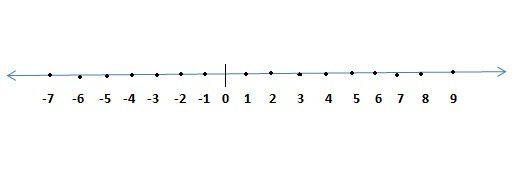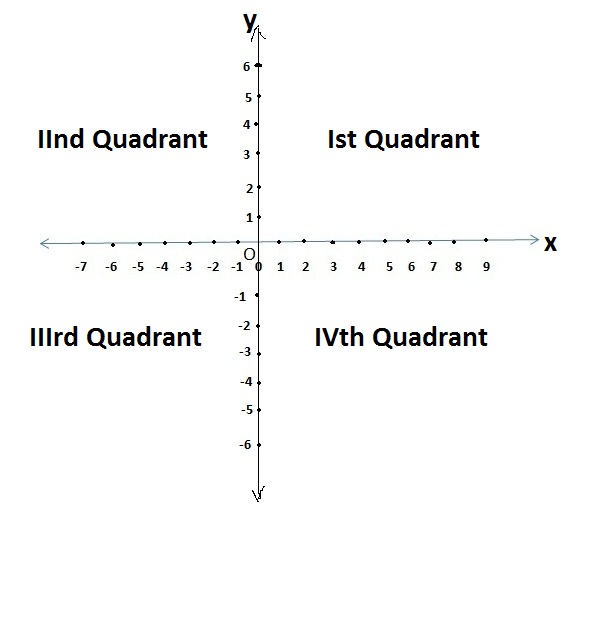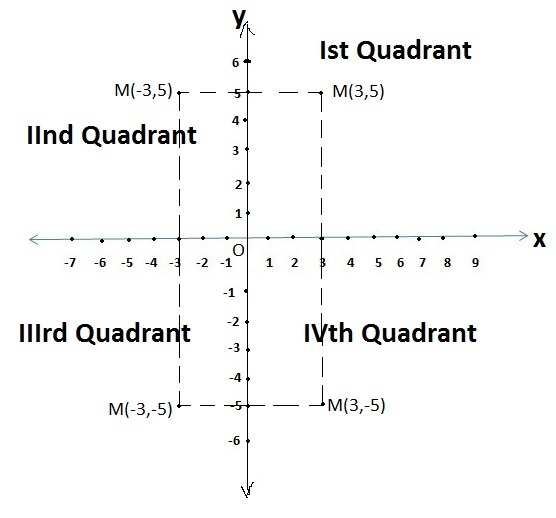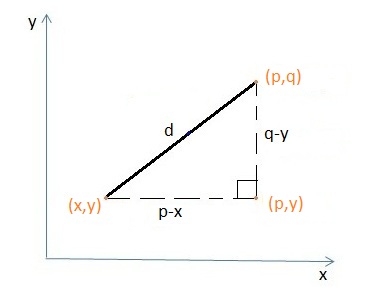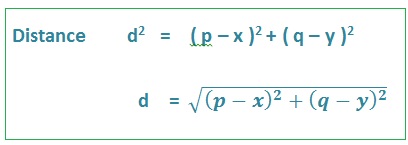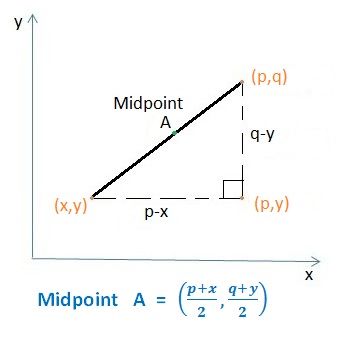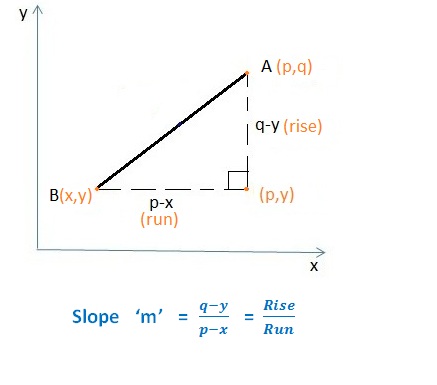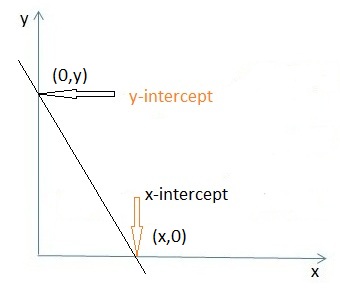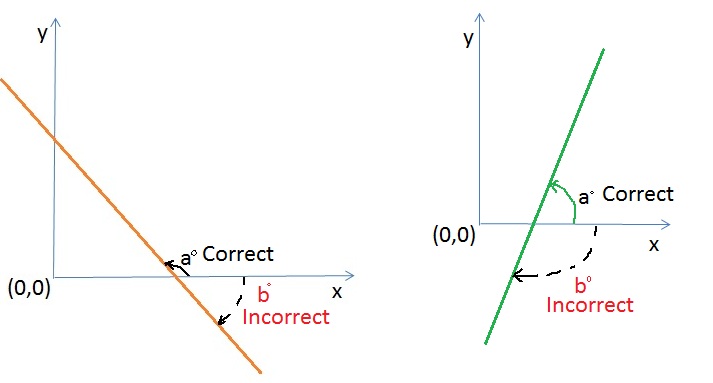Concept of Co-ordinate Geometry
We all know about number line in which we identify the location of a number from ‘0’.
-
The value of number will increase if you go right side of ‘0’. That means the point which represents a number will have a positive value.
-
The value of number will decrease if you go left side of ‘0’. That means the point representing a number will have a negative value.
In coordinate geometry we take two number lines one is x-axis represented as horizontal line while another is y–axis represented as a vertical line. Both the line perpendicularly intersects each other at ‘0’ and define a rectangular xy – coordinate system, generally known as xy – plane.
There are four quadrants I, II, III and IV which shows the values for coordinates of a point. The origin is at ‘O’ with the coordinates (0, 0).
Quadrant |
x- coordinate |
y – coordinate |
Example |
Ist |
positive |
positive |
x= 2 , y = 5 |
IInd |
negative |
positive |
x= -3, y =9 |
IIIrd |
negative |
negative |
x= – 6, y = – 4 |
IVth |
positive |
negative |
x= 1, y = – 5 |
Point in any quadrant is identified with pair (x, y) of real numbers. Suppose we want to show a point ‘M’ in Ist quadrant then it can be written as M (3, 5) means there is a point whose x- coordinate is 3 and y – coordinate is 5. Similarly for other quadrants refer below figure.
Facts about Coordinate Geometry
-
If x = 0, the point lies on y- axis
-
If y = 0, the point lies on x- axis
-
If not specified; the units of real numbers for x-axis and y-axis are same.
Hence the xy-coordinate system is used to define the geometry of object lies in xy-plane. The objects can be rectangular , square, circle , polygon or any combination of geometrical shape. The various points of the objects are defined with respect to the origin.
Formulas
1.Distance
For finding distance between two points draw a right angle by adding some more lines to the line joining two points and apply Pythagorean theorem. The first point will be nearest to origin.
Let us understand with this example.
Here we are having two points M (3, 3) and N (5,-6). After adding some lines we will get a triangle LMN as shown in below figure. To find out distance between these two points apply Pythagorean Theorem for Δ LMN.
Diagonal MN = Hypotenuse, NL and LM are side arms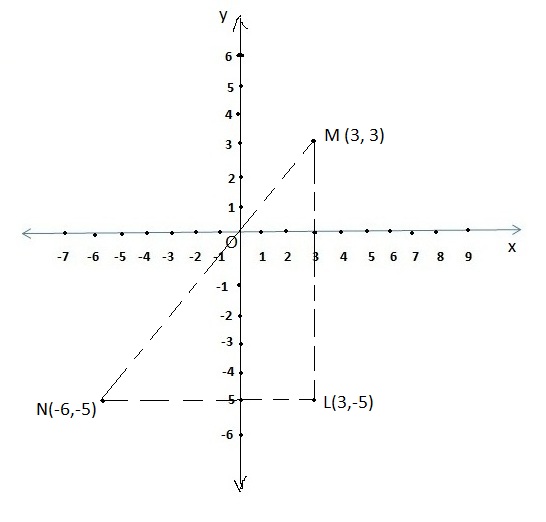
MN2 = NL2 + LM2
= 92 + 82
= 81 + 64
= 145
MN = √145 = 12.04
2. Midpoint
– To find the midpoint of two points, take the average of x and y coordinates of the points.
3. Slope
The slope of a line passing through two points A (p, q) and B (x, y) is the steepness of the line. It is generally represented with letter ‘m’;
- Rise is the distance that we move vertically from first value of y to second value of y.
- Run is the distance that we move horizontally from first value of x to second value of x.
Slope is always taken in terms of fraction. Read more about Types of slope
